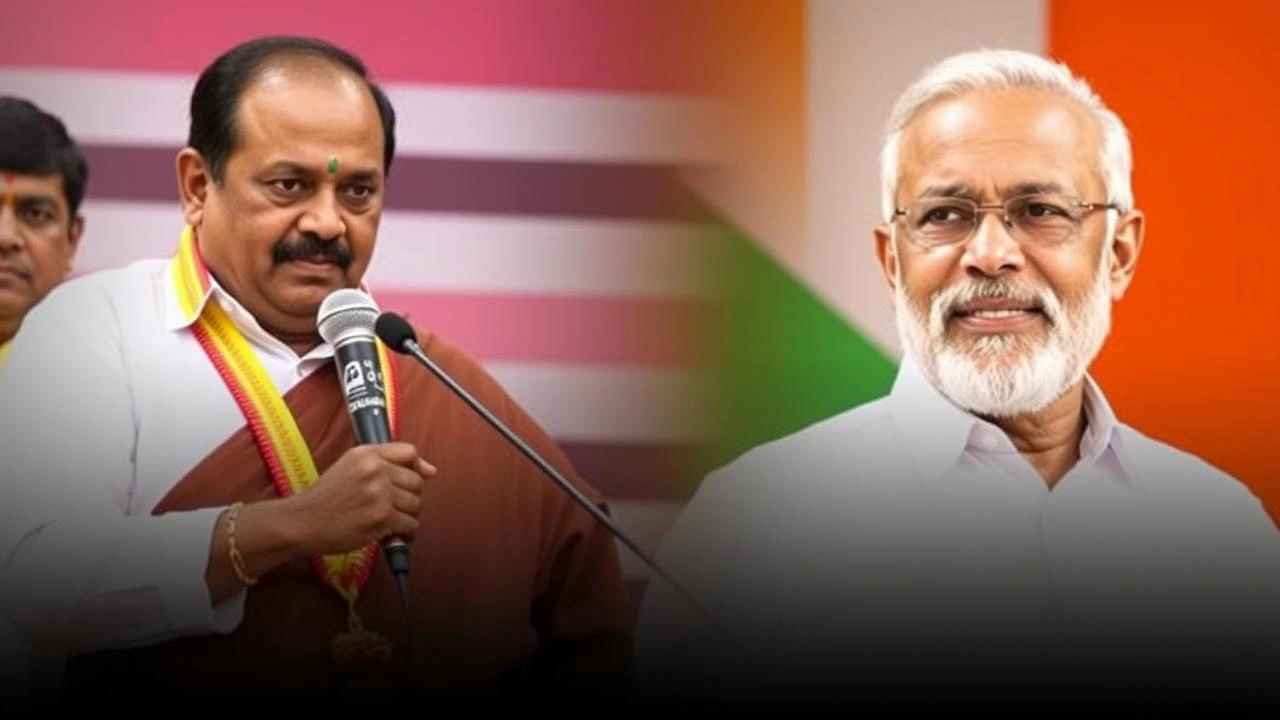In the complex political landscape of Tamil Nadu, the relationship between the AIADMK (All India Anna Dravida Munnetra Kazhagam) and BJP (Bharatiya Janata Party) has remained a focal point of discussion. The alliance has been viewed with skepticism by many voters, particularly in light of political dynamics that continue to evolve. Recently, the AIADMK has given mixed signals regarding its ongoing partnership with the BJP, leading to speculation about potential setbacks to their coalition.
Historical Context of AIADMK-BJP Relations
The political alliance between AIADMK and BJP has been influenced by various factors since its inception. Established in the late 20th century and gaining prominence during the 2019 Lok Sabha elections, their partnership has seen fluctuations in support and public perception. Over the years, it has been characterized by cooperation on certain policies while remaining strained over state-specific issues pertinent to Tamil Nadu’s socio-political ethos.
Factors Influencing the Alliance
- Ideological Differences: AIADMK, rooted in Dravidian politics, often prioritizes local sentiments and welfare schemes, while BJP, being a national party, leans towards broader Hindutva narratives.
- Electoral Strategy: The alliance aims to consolidate Hindu votes, but it also risks alienating non-Hindu voter bases crucial for AIADMK.
- Leadership Dynamics: Changes in leadership within both parties can shift the alliance’s focus, bringing new directions and strategies that may not align with long-held regional sentiments.
Current Mixed Signals from AIADMK
Recent statements from AIADMK leaders have raised eyebrows concerning their commitment to the alliance:
- Public Sentiment: Rumblings from the AIADMK’s grassroots suggest a disconnect with the BJP on several socio-political issues. A senior AIADMK leader recently stated, “The people don’t like some of the policies pushed by our alliance partners.” This sentiment highlights concerns about voter perceptions towards BJP’s initiatives in Tamil Nadu.
- Local Issues Over National Politics: AIADMK has often prioritized local issues, such as caste representation and regional resource allocation, and this focus sometimes clashes with BJP’s national-centric ideologies.
- Electoral Performance: The 2021 assembly elections marked a significant setback for both parties, further intensifying doubts about their electoral viability as a coalition.
Implications of the Mixed Signals
The AIADMK’s mixed signals regarding its alliance with the BJP could have far-reaching implications for both parties:
- Voter Base Alienation: As AIADMK expresses reluctance towards certain BJP policies, it risks alienating its traditional voter base, especially in a state known for its strong regional parties.
- Political Uncertainty: With elections on the horizon, the uncertainty regarding the coalition could foment discontent within the party ranks, leading to potential factionalism.
- Impact on Future Alliances: The perceived instability could deter other regional parties from entering into coalitions, fearing similar political discord.
| Implication | Description |
|---|---|
| Voter Alienation | Risk of losing core voters due to conflicting party ideologies. |
| Political Uncertainty | Internal discord may arise within AIADMK as factions may emerge, leading to chaos ahead of elections. |
| Future Alliances | Other parties may hesitate to ally with either party due to visible instability and mixed signals. |
Perception of the Alliance among Voters
To understand the nuances of the AIADMK-BJP alliance, it’s essential to gauge public sentiment. Surveys and polls indicate a mixed reception among the electorate:
- Support for Regional Sentiments: A substantial portion of the population remains loyal to AIADMK due to its legacy and regional leadership.
- Distrust towards BJP Policies: Many voters express concerns over BJP’s policies related to cultural and linguistic imposition, fearing a dilution of Tamil culture.
- Desire for Focused Governance: Voters report a preference for governance that prioritizes state issues over national narratives, which often leads to discontent with the coalition.
Future Outlook
Given the recent developments, questions abound regarding the future of the AIADMK-BJP alliance. What can voters expect moving forward?
- Reevaluation of Alliances: AIADMK might consider re-evaluating its strategy with BJP, focusing on local issues that resonate with their voter base.
- New Leadership Directions: With potential changes in AIADMK leadership, the party could pivot towards a platform more aligned with Tamil sentiment.
- Grassroots Engagement: AIADMK may seek to engage more with grassroots movements that reflect local needs, distancing itself from perceived failures of the alliance.
FAQs
Q: How has the AIADMK-BJP alliance affected the political landscape in Tamil Nadu?
A: The alliance has brought together two parties with differing ideologies, influencing electoral strategies and altering traditional voting patterns, although it faces criticism for not aligning with regional concerns effectively.
Q: What are the primary concerns voters have regarding the alliance?
A: Voters express concerns over BJP’s national policies overshadowing local needs, dissatisfaction with the pace of development, and a fear of cultural dilution.
Q: Are there indicators of a potential split between AIADMK and BJP?
A: While there have been mixed signals from AIADMK leaders expressing discontent with BJP’s policies, a definitive split is yet to transpire; however, speculation continues to grow.
Q: What might be the consequences for AIADMK in the next election cycle?
A: Continued mixed signals could lead to voter discontent and loss of seats if AIADMK does not address local issues effectively or clarify its stance on the alliance with BJP.
In conclusion, the AIADMK-BJP alliance faces significant hurdles as political dynamics continue to evolve. With mixed signals coming from within AIADMK, it is crucial for the party to navigate public discontent and reassess its coalition strategies to maintain its electoral viability in Tamil Nadu. The future of this partnership will depend largely on how both parties address the concerns of the electorate while remaining true to their political ideologies.
Setback to AIADMK-BJP tie-up in Tamil Nadu? AIADMK throws mixed signals, ‘people don’t like…’






